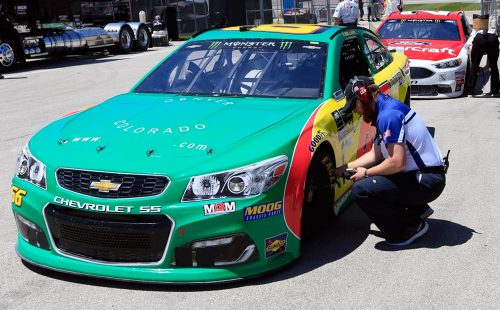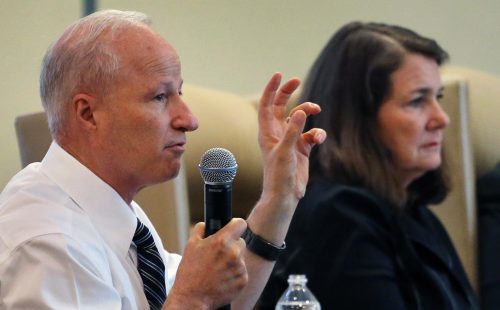New York state’s medical marijuana program could become slightly more accessible with the introduction of the first approved flower product. Currently, regulations prohibit patients from purchasing smokable flower. But the new product could be moving things a step closer in that direction.
Rolling Out Curaleaf Ground Flower Pods
Starting today, medical marijuana patients in New York can purchase flower for the first time ever. Sort of.
The state has approved cannabis company Curaleaf to market and sell its Ground Flower Pods.
The pods come pre-filled with a specifically dosed amount of ground cannabis flowers. From there, the pods can be used in medical vaporizers, which heat the ground flower to temperatures just below combustion but hot enough to vaporize the bud. To medicate, patients simply inhale the vapor.
As per a press release circulated today, Curaleaf’s Ground Flower Pods contain 350 milligrams of cannabinoids. More specifically, the pods come in a 20:1 ratio of THC to CBD. And the company is selling pods in both indica and sativa strains.
For now, Curaleaf has been approved to sell the pods in its dispensary located in Nassau County, Long Island. Moving forward over the next few weeks, the pods are scheduled to roll out across Curaleaf’s four other New York state dispensaries.
In addition to the new flower pods, Curaleaf also said it is selling its own tabletop vaporizer. The device works perfectly with pods.
And the company also has a delivery service for patients. Delivery is free with any purchase. But Curaleaf only runs deliveries Thursday through Saturday. Only patients registered in Nassau, Suffolk, Queens, Kings, and New York Counties qualify for delivery.
Complying With State Laws
Importantly, the new flower pods walk something of a legal tightrope, given the difficulty of selling flower in New York state.
Under the state’s current medical marijuana regulations, patients can purchase, possess, and consume only the following products:
- capsules, tablets, or lozenges
- pre-measured oils for vaporizing
- topicals
- transdermal patches
- certain types of measured ground plant preparations
Notably, these regulations prohibit any form of smokable marijuana as well as edibles. In practice, this rule essentially makes it impossible for dispensaries to sell actual bud to patients.
But Curaleaf’s pods manage to find some middle ground. That’s because they aren’t selling straight up nugs. They’re selling pre-ground flower in a specifically dosed pod.
Further, the pods can’t actually be smoked. Instead, they are designed to go inside a vaporizer, so that patients can medicate while still complying with the state’s rules against smoking.
Many in the state are optimistic about patients being able to purchase flower—even if it is still limited to pre-ground, pre-measured pods.
“As a practitioner in the Long Island area, I strive to help patients attain the most effective medicine to treat their conditions,” medical marijuana doctor Grace Forde said in the press release.
“It’s extremely beneficial to patients to offer more options beyond cannabis oil. In addition to being more affordable and all-natural, vaporizing cured ground flower cannabis produces effects faster than oral solutions and is therefore better suited for treating certain medical conditions.”
The post New York Medical Marijuana Patients Can Finally Buy Flower Products appeared first on Green Rush Daily.
 A crew member for NASCAR driver Carl Long checks the tires of Long’s car, which previously had the logo for a Colorado marijuana vape cartridge maker on the hood, during practice for the NASCAR Monster Cup auto race at Kansas Speedway in Kansas City, Kan., on Friday, May 12, 2017. (Orlin Wagner, The Associated Press)
A crew member for NASCAR driver Carl Long checks the tires of Long’s car, which previously had the logo for a Colorado marijuana vape cartridge maker on the hood, during practice for the NASCAR Monster Cup auto race at Kansas Speedway in Kansas City, Kan., on Friday, May 12, 2017. (Orlin Wagner, The Associated Press) U.S. Reps. Mike Coffman, R-Colo. and Diana DeGette, D-Colo. (Brennan Linsley, Associated Press file)
U.S. Reps. Mike Coffman, R-Colo. and Diana DeGette, D-Colo. (Brennan Linsley, Associated Press file)



